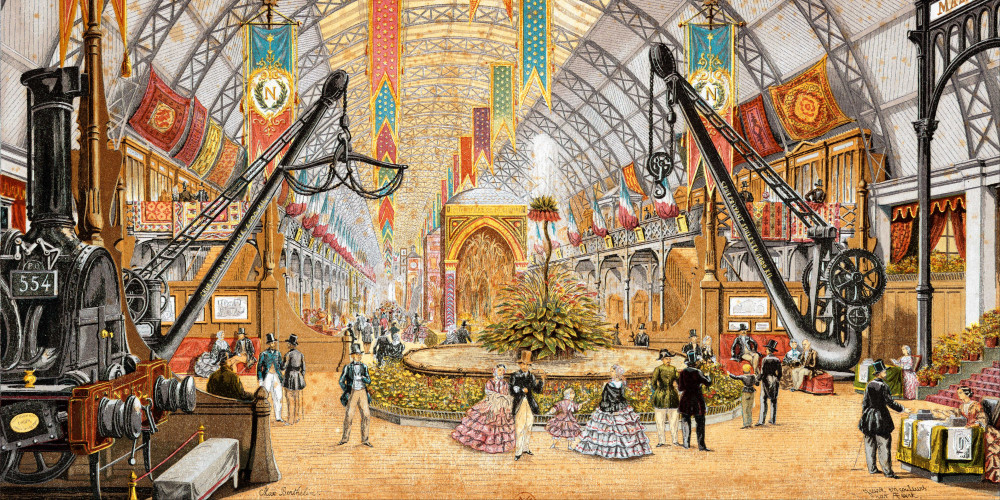How did Ottomans make a big impression at world's 1st international fair?
At the world's first international fair in Paris, the Ottoman Empire made a significant impression with its textile and arms industries, despite initial concerns about industrial espionage

In a talk titled "Ottoman Trade Expeditions: Turks and Their Products at World Fairs," associate professor Sefik Memis revealed the Ottoman Empire's participation in the Paris Fair, the very first international exposition in 1855, and how they left a significant impression.
Memis, speaking at the Mavera Foundation's Wednesday Talks, highlighted the fair's significance as the first instance of significant foreign interest in Ottoman goods, particularly Anatolia's mineral and agricultural riches.
The Ottomans established their own exhibition section to showcase their products for the first time. The display of textiles and traditional weaponry particularly impressed attendees, sparking potential import opportunities.

More importantly, Memis discussed the trade expeditions the Ottomans undertook as a strategic shift away from military ventures. This new approach reflected the empire's attempt to adapt to the changing global order by prioritizing commercial success in the 19th century.
Memis pointed out that the Ottomans, along with the United States, were initially hesitant to participate in the world's first international fair, held in England during Sultan Abdulmecid's reign. This hesitation stemmed from concerns about industrial espionage.
Memes said that the concern about industrial espionage was justified.
"At the fair, where British fabricators sent all their employees compulsorily, Turkish textile products were imitated and put into mass production. What was feared happened, but there was also an experience gained. For the first time, the Turks set up a section in an exhibition and displayed their products. They made an impression especially with the sparkle of their textile products and the products of the traditional arms industry."

Memis stated that ceramics, textiles, carpets, rugs, weapons and niche products were more prominent in the Paris Fair, in which the Ottoman Empire participated in 1855.
"For the first time, we witnessed a surge in foreign interest in importing our goods, particularly resources like minerals and agricultural products that could fuel their industries," he said.
Pointing out that a significant portion of the products exhibited at the fairs was from the Fabrika-i Humayun (a State factory established by the Ottomans), Memis mentioned that the Ottoman Empire started to receive awards for products such as endemic wheat and tobacco species.
Professor Memis further explained that the Ottomans' approach to World Fairs evolved over time. Later, fairs saw a more prominent Ottoman presence, with the sultan participating in some.
A fascinating aspect of this evolving strategy was the creation of "Ottoman Villages" within the fairgrounds. These elaborately designed villages served as a platform for cultural exchange. Visitors could experience Ottoman architecture through mosques, traditional houses, and coffee houses. Additionally, these villages showcased models of significant artifacts like the Dikili Stone, offering a glimpse into the Ottoman Empire's rich history and heritage.
Memis underlined that the opening of the 1867 World Fair by Sultan Abdulaziz has an important place in history.
Source: Newsroom






